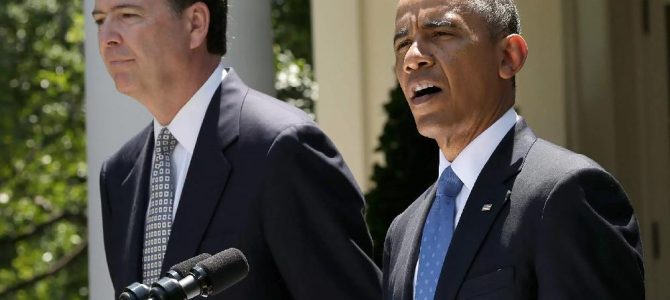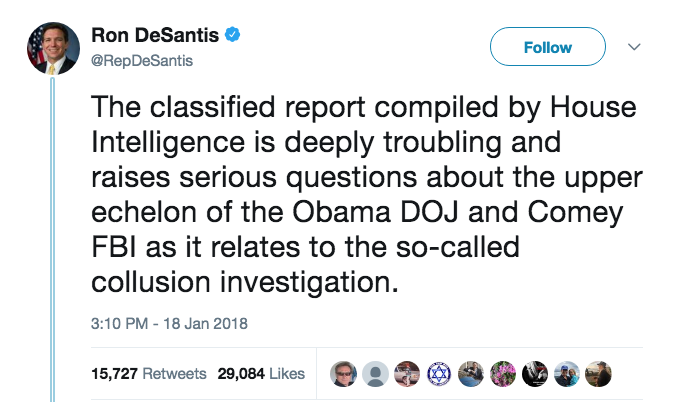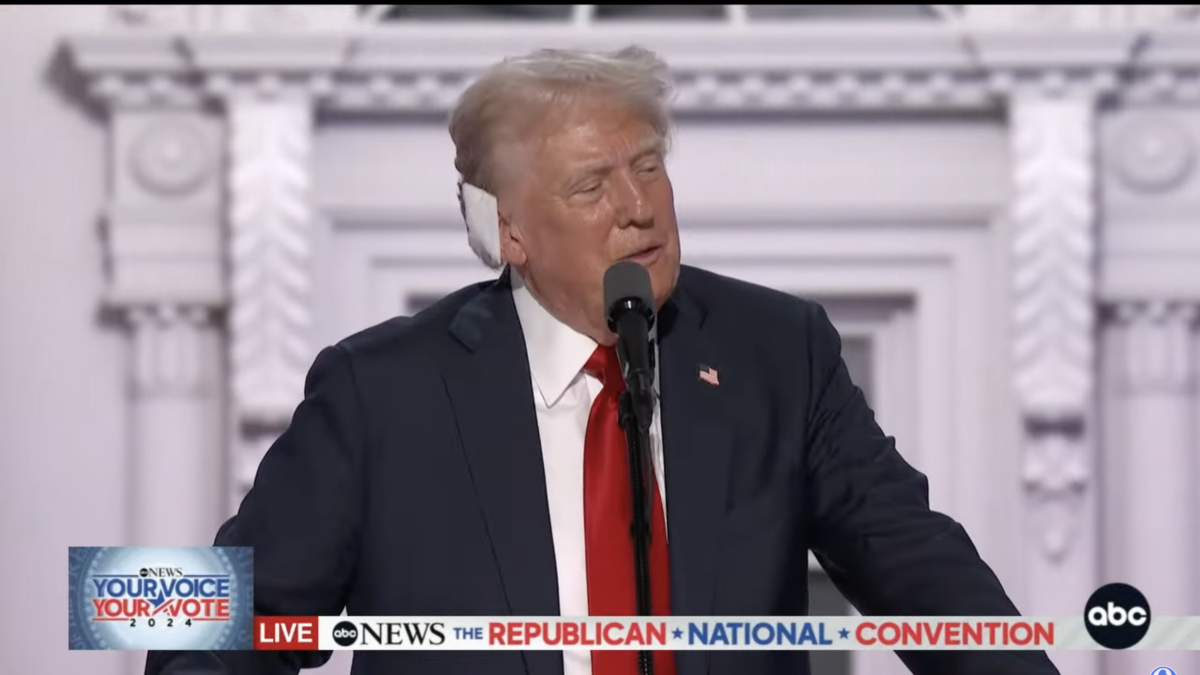
The impending release of a major classified document from investigators at the House of Representatives is stoking outrage and intrigue among voters and beltway elite alike. Because the report is held under lock and key and available only to lawmakers in the House who have legally agreed to abide by House rules and keep the information secret until it’s publicly released, little is known about the document. What we do know is that the document is based on oversight and investigation of the FBI and Department of Justice and details potential abuses of those agencies’ authorities as it relates to the Steele dossier and secret surveillance warrants obtained by the Obama administration.
Here is what to expect ahead:
1) The memo will likely be released to the public — eventually.
The House Permanent Select Committee on Intelligence already voted to allow all 435 members of the House of Representatives see the document. In order to see it, they must go to a secure site and legally agree to keep its contents undisclosed until such time it is publicly released. As House members have begun reading the document, they have called for its public release on the grounds of its importance. To date, more than 200 members, most of them Republican, have read the document. When the House reconvenes next week, the committee may vote to release it to the public. If they do, President Donald Trump has five days to notify the committee of his opposition to its release. If he objects, the entire House may vote to release its contents. If he does not object, it may be made public after the five days expire.
2) The memo is a summary.
The document is a summary and is only four pages long. It’s not going to be a massive compendium with hundreds of pages of salacious details to pore over. It will likely be a concise summary of a year-long investigation involving millions of documents and hundreds of hours of interviews.
3) The memo will provide facts.
Since the dossier and its contents, along with other Democrat-funded opposition research alleging nefarious contacts between Russia and Trump, have been given to the media, journalists have written thousands of pieces on the topic. Many of these pieces are based on hearsay, motivated leaks, and have been published despite reporters having no understanding of their context or even seeing the documents upon which the leaks are based. As a result, much of the widespread speculation has been contradictory or wildly wrong. This memo will provide facts and shed light on these allegations that have run rampant throughout the media.
4) The memo will detail wrongdoing, but readers should keep expectations in check.
As soon as House members saw the document, many of them were alarmed. Some of them particularly so. They’ve described it as “troubling,” “shocking,” “jaw-dropping,” “sickening,” “worse than Watergate,” and “criminal.”

Even Democrats are telegraphing that the memo is significant. Those who have seen the memo argue against its release. They say that the items alleged are taken out of context or that they are meaningless without the classified documentation supporting them. But they are not saying it’s not a big deal. And their level of hostility to making it public suggests the opposite.
There is no question that the allegations in the document are a big deal. However, the perception of the significance of the report will vary. For people who know a lot about the Russia investigation and how it was operated, it may seem more significant than to those who are not as up-to-speed on the complicated details. People who have a high tolerance for surveillance or aggressive law enforcement may be more excusing of abuses than others. And people with strong feelings about Trump — either pro or con — may find it difficult to set aside those feelings as they evaluate the facts regarding the Department of Justice and FBI’s handling of their extensive powers.
Also, the document will be released after weeks of discussion about it. If it had been leaked without notice, it would create a huge splash. But because the committee is working deliberately and within the confines of House rules, people will have had weeks to hype or denigrate the document — even if they haven’t seen it. Wise observers will calmly wait and read the document should it become available.
5) Expect major pushback from surveillance state.
While the general public does not yet know the specifics contained in the report, we know that the alleged abuses by senior officials at the FBI and Department of Justice are significant enough to cause a wide variety of lawmakers extensive concern. Expect the FBI and DOJ to react the same way any other individual or institution reacts when indicted or charged with a major or heinous crime. They’ll assert their innocence, claim that the information is false, say that the oversight committee can’t prove anything.
Rep. Ron DeSantis (R-Fla.) said, “While the report is classified as Top Secret, I believe the select committee should, pursuant to House rules, vote to make the report publicly available as soon as possible. This is a matter of national significance and the American people deserve the truth.”
Assistant Attorney General Stephen Boyd strongly disagreed, sending a letter to Rep. Devin Nunes (R-Calif.) saying releasing a memo alleging abuses at the Department of Justice and FBI would be “extraordinarily reckless.” This should surprise no one. No person or organization wants their dirty laundry aired in public, even if the letter’s claims that Americans can’t learn about law enforcement abuses lest it harm national security might be a bit overly dramatic. Transparency is difficult for everyone, even if it’s good for the country and these agencies in particular in the long run.
Even just the threat of the document’s release resulted in a new flurry of leaks regarding the investigations spurred by the dossier. Those will likely continue until the report is released, if past is prologue.
6) Expect major pushback from anyone who latched onto the Russia-Trump collusion theory over the last year.
The 4-page document will reportedly discuss FBI and DOJ handling of Democrat-funded opposition research that was used in official law enforcement work. The more Americans learn about the Russia-Trump collusion theory, the more it seems that the entire story was cooked up by that Democrat-funded opposition research. None of the substantive allegations in the infamous Steele dossier have been independently verified.
If there really is nothing to the Trump-Russia collusion theory, it poses something of an existential crisis for those who bought into the theory as their best hope for removing the elected president. That includes the activist left, the Democratic Party, the mainstream media, and also elements of the NeverTrump right. Among all the theories and attacks on the president, be they legitimate or illegitimate, the Russia theory is set apart and special because of its impeachment power and key to ousting him. While a few Republicans in Congress are working against those forces, the combined power and messaging coordination of the resistance is formidable.
You can see this already with how minor messaging points are blown up into large stories. Sen. Richard Burr (R-N.C.) told journalists he was not allowed to see the House Intelligence Committee memo. That’s true, since the only legal access right now is for House members and Burr does not serve in the House but the Senate. It would at the very least require a vote of the entire committee to change those access protocols without violating rules. Still, a combined messaging campaign arose out of this talking point.
Earlier, resistance-allied journalists pushed the talking point that the FBI wasn’t allowed to see the memo alleging abuses at the FBI. These journalists were apparently confused as to which of the two entities has oversight of the other. The FBI is an inferior subordinate agency. Perhaps that’s a reasonable confusion in light of FBI behavior in recent years, but divided government is a real thing that remains. But the document might also encompass other agencies. Why would the FBI get a preview before other agencies? In any case, expect a lot of drama and pushback against the document.
7) Expect conflicting messages from opponents of the summary document.
The first conflicting message was previewed in the Department of Justice’s letter to the House Intelligence Committee, which argued that America will be in greater danger as a result of House of Representatives doing its job and undertaking its Constitutional duty to conduct thorough oversight of agencies created and funded by Congress and accountable to the American people.
Others say that the Intelligence Committee should not release the summary without the underlying evidence. But the FBI has only allowed House investigators to look at the documents, not hold them or otherwise be in a position to release them. Only the FBI and DOJ and other law enforcement and surveillance agencies can release them to the public. And yet it’s those agencies’ intransigence against Congressional oversight that is one of the matters at hand and a driving factor behind the entire investigation.
That letter also alleged that Nunes has not even seen much of the documents and evidence that he’s basing his memo on. How can they possibly know what the memo is based on if they haven’t seen it? Further, Nunes told these agencies to give that information to Congress so if he hasn’t seen it, why hasn’t he? Who is hiding it?
Democrats on the House Intelligence Committee voted against making the document available to other House members, but are also complaining about not giving Senators access to the document. The argument seems to be that they don’t want the House members to see the document and they don’t want the public to see the document, but they do want the Senate to see it and they want the FBI to see it.
Media and other partisans have derided concerns of wrongdoing at the Justice Department as a conspiracy theory not meriting deliberation, while they engaged with a major theory with no substantiation for more than a year. Their engagement with this theory about treasonous collusion between Trump and Russia led to an investigation of a sitting president of the United States. It’s odd to deride oversight undertaken by elected lawmakers as a conspiracy theory while promoting a campaign-funded partisan operation with no basis to investigate the president of the United States as a legitimate inquiry worthy of the most thoughtful and considerate deliberation. It’s also odd to have seen non-stop media speculation based on anonymous sources about this unsubstantiated collusion theory followed by a demand for rigorous substantiation of a House Committee document.
8) This is the beginning of a process, not the end.
While the summary of one aspect of the House Intelligence Committee’s oversight and investigation is significant, it is not the last of the story. The memo is the beginning of a conversation between lawmakers and others about how the agencies they oversee should responsibly handle their massive surveillance and law enforcement powers.








